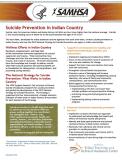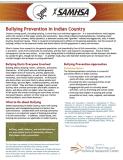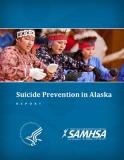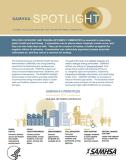
This fact sheet, developed for tribal audiences and the agencies that work with them, reviews suicide prevention in Indian Country and how the 2012 National Strategy for Suicide Prevention can apply to tribal communities.
Units per Product
Download
Suicide Prevention in Indian Country
File Type: PDF
File Size: 1010 KB





